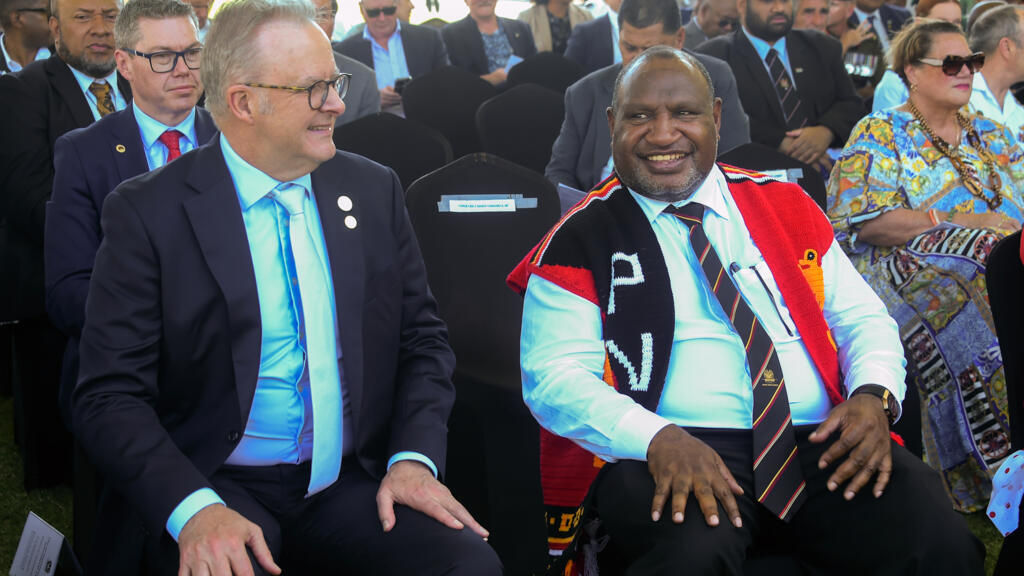Papua New Guinea Cabinet Approves Defence Treaty with Australia

The Papua New Guinea cabinet has approved a defence treaty with Australia, Prime Minister James Marape said on Thursday, as Canberra seeks to block China from expanding its security presence in the Pacific.
Under the Pukpuk defence treaty, Australia and Papua are obliged to come to each other’s aid if attacked.
“Australia has only one other mutual defence treaty of this type and at our request Papua New Guinea will now sign this treaty,” Marape said in a statement. “This reflects the depth of trust, history, and shared future between our two nations.”
The treaty would also allow as many as 10,000 Papua New Guineans to serve with the Australian Defence Force, under dual arrangements, the statement said.
The landmark treaty still requires ratification from both nations’ parliaments.
Australian Prime Minister Anthony Albanese said he welcomed the treaty’s formal approval by PNG.
“Our two nations are the closest of neighbours and the closest of friends, and this treaty will elevate our relationship to a formal alliance,” he said in a statement. “I look forward to signing the treaty with Prime Minister Marape soon.”
The agreement was initially expected to be approved during Albanese’s visit to Port Moresby for PNG’s 50th independence anniversary two weeks ago. However, a lack of quorum in the PNG cabinet delayed ratification.
Albanese also visited Vanuatu last month but was unable to secure a A$500 million ($331 million) security partnership after a coalition partner in the Vanuatu government called for further review.
Australia has been working to use security agreements to limit Chinese influence in the region, following China’s security pact with the Solomon Islands.
The United States reached a defence pact with PNG in 2023, aiming to counter China’s security ambitions in the Pacific.
The Pukpuk treaty also recognises that both PNG and Australia can maintain defence relationships with other nations, Marape said.
“Provisions are in place to respect third-party relationships,” he said.

peso99 https://www.repeso99.net